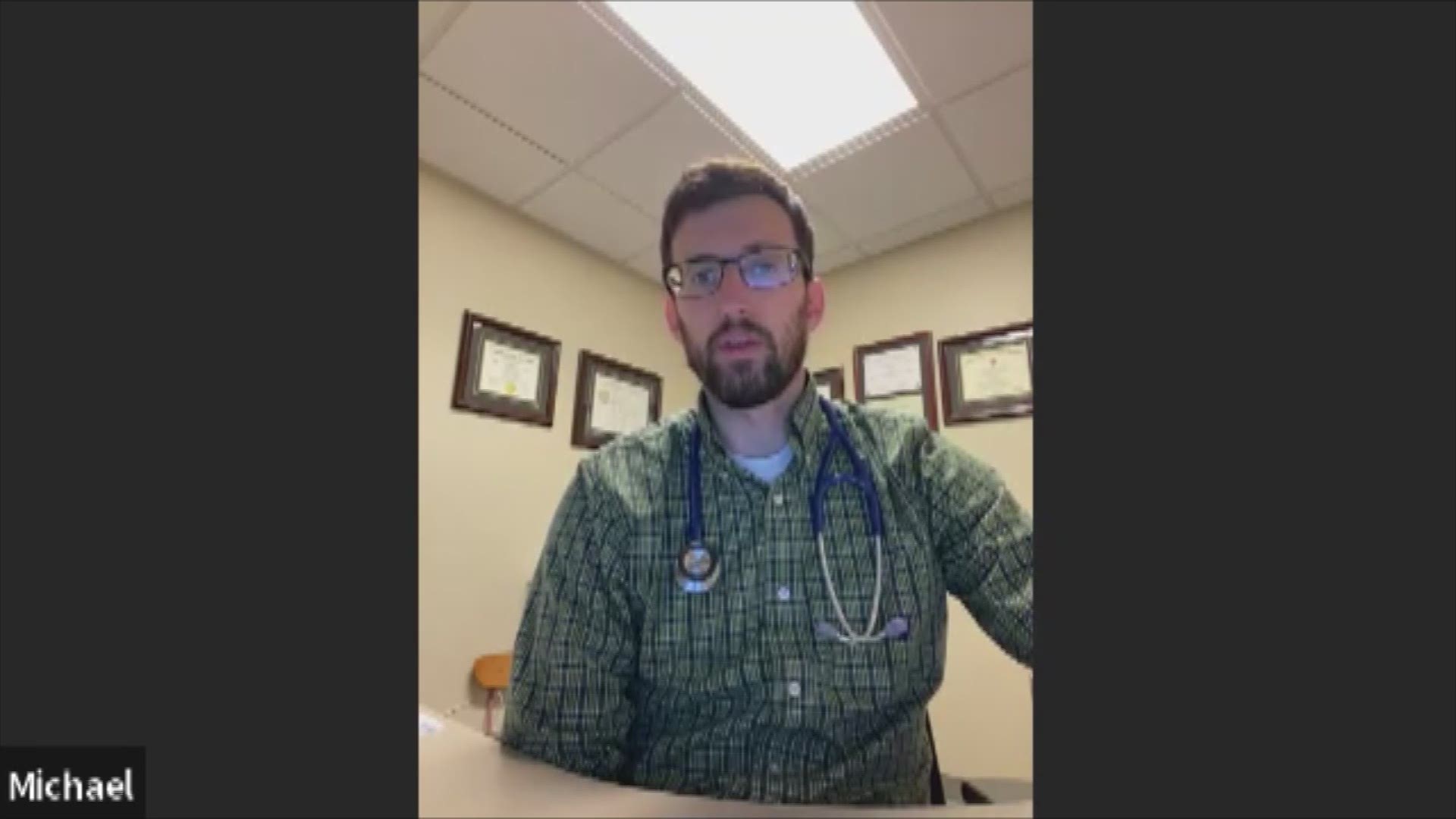CLARION, Iowa — Dr. Michael McLoughlin wears many hats. He works as a general internist at Iowa Specialty Hospital in Clarion, is in charge of the center's COVID response, and also serves as medical director of Wright County Public Health.
"That's kind of how we do it out in smaller counties," said McLoughlin. He spoke to Local 5 from his office in Clarion on Monday.
At that time, Iowa Specialty was part of the network of hospitals caring for the 561 hospitalized coronavirus patients. McLoughlin said his center has seen a steady number of patients over the past several weeks.
Though most of the patients only spend a few days at McLoughlin's hospital, it has become more difficult finding larger centers to take the more seriously ill patients.
"Those bigger hospitals are filling up, and so that's one of our many concerns as we go into the winter," said McLoughlin. "Already in a typical winter, those big hospitals are full. You bring in COVID, and we could be in a bad place."
McLoughlin, like his colleagues in several other rural parts of the state Local 5 has spoken to, said this latest uptick in cases and hospitalized patients feels different.
RELATED: 'This could be the tip of the iceberg': Iowa doctor concerned about latest surge in hospitalizations
"This surge, it's just dramatically more widespread," said McLoughlin. "Three months ago we could ask someone where they worked and we could go in and test everybody there and basically find all the cases, and then work with public health and kind of slow it down. Now, a lot of these people have no idea where they got infected."
That inability to pinpoint if a particular workspace or large event is the source of community spread has made it much more difficult on public health leaders to do the essential contact tracing, said McLoughlin.
"It's so much more complex," said McLoughlin. "You know, I think we all just kind of know we probably aren't being as successful as we were before."
Gov. Kim Reynolds has said she is in constant contact with medical leaders across the state, asking them if they need anything or what their surge plans are. Yet no new mitigation efforts, such as shutting down businesses or limiting social gatherings, have been taken statewide in months.
McLoughlin is most concerned about what's to come in the next month.
"We're concerned about where we're going more than being in a particularly bad place right now," said McLoughlin. "I think we're in a poor place in terms of how we are preventing some of these cases from happening. But we are more concerned about where we will be a month from now."

